Safely Viewing The Solar Eclipse: Insights from AxessPointe Community Health Center Optometrist
As the highly anticipated solar eclipse draws near, ensuring eye safety is crucial as we prepare to witness this once-in-a-lifetime event. Dr. David Dawson, an optometrist at AxessPointe Community Health Centers, offers some expert advice to view the eclipse safely and discusses the risks of viewing it without proper protection.
Can viewing a solar eclipse without proper eye protection cause permanent damage to the eyes, and if so, what are the potential risks?
“Yes! Viewing a solar eclipse without proper eye protection can cause damage to the retina. Injury can occur in as little as a few seconds. This is known as solar retinopathy or “eclipse retinopathy”. The sun’s rays are very intense. Even though the sun may be mostly covered during an eclipse, viewing any part of the sun directly can cause photochemical “burns” to the retina. These retinal burns typically occur in the macula, causing small “dead” spots in the central vision. Vision loss can be temporary, or even permanent. Permanent vision loss results from retinal scarring.
Most people are familiar with how a magnifying glass can be used to burn objects by focusing the sun’s rays. This happens by a process known as photothermal or “heat” damage. Damage to the retina occurs through a slightly different process, known as photochemical injury. The eye focuses sunlight onto the retina, and the concentrated area of focused light can cause the exposed tissue to release free radicals. This can produce injury and destruction of retinal tissue. There is no known treatment for solar retinal burns, so the best strategy is to prevent the damage in the first place.”
As an optometrist, what recommendations do you have for patients who want to safely view a solar eclipse, especially those with pre-existing eye conditions or concerns?
“The only safe way to watch a solar eclipse by direct viewing is with an approved solar filter (typically eclipse glasses). Approved filters should meet very specific international standards to be considered “safe” for eclipse viewing (ISO 12312-2). Ordinary sunglasses are not sufficient. The American Astronomical Society publishes a list of verified vendors from which “safe” eclipse viewing glasses and filters can be purchased. Purchasing eclipse glasses from Amazon or unvetted online vendors is not recommended, as these can be counterfeit or falsely claim to meet ISO 12312-2 standards.
Eclipse glasses or filters should always be inspected before use. It is important to make sure that they are undamaged and without scratches. Be sure to carefully read the directions that come with the eclipse glasses. Glasses should completely cover the eyes or be worn over prescription glasses, such that they completely protect the eyes from direct sunlight exposure. Filters should be put on before looking directly at the eclipse, and they should be removed only after looking away from the eclipse.
A solar eclipse can also be viewed safely using “indirect” viewing or projection methods. A simple and inexpensive pinhole viewing method, as well as other indirect viewing devices, can be explored here: https://eclipse.aas.org/eye-safety/projection
Viewing a solar eclipse safely is important for every one of us. But surprisingly, children are at higher risk for damage. Younger individuals have clearer ocular lenses (no cataracts). This allows higher intensities of light to reach the back of the eye. It is also especially important for people with existing eye diseases, such as macular degeneration and glaucoma, to protect and preserve their remaining vision.
Anyone wanting to view the upcoming solar eclipse should, absolutely, participate in this exciting activity! They should just make sure to use verified eclipse glasses with proper techniques, to enjoy the experience safely.”
In conclusion, it’s vital to prioritize your eye safety during the solar eclipse by following Dr. Dawson’s recommendations and using the approved filters.Let’s make the upcoming celestial event a memorable and safe experience for everyone involved.
Resources:
https://eclipse.aas.org/eye-safety/safe-viewing
https://www.aao.org/eye-health/tips-prevention/solar-eclipse-eye-safety
https://www.ooa.org/aws/OOA/pt/sp/solareclipse
https://science.nasa.gov/eclipses/safety/
https://ohio.preventblindness.org/solar-eclipse-and-your-eyes/


